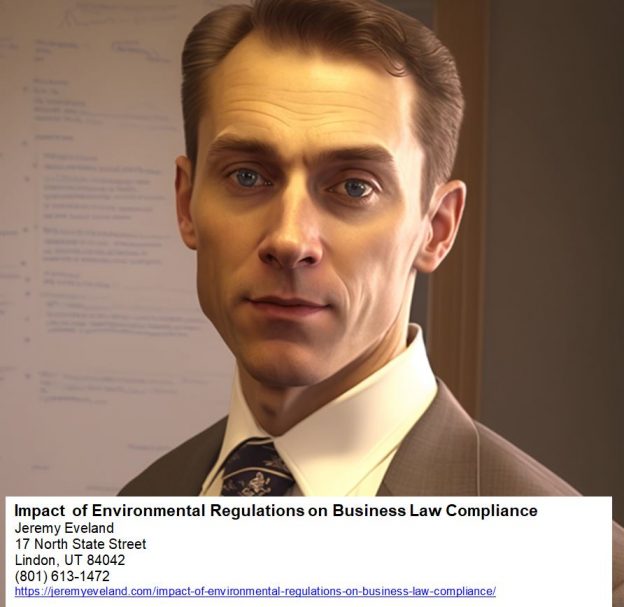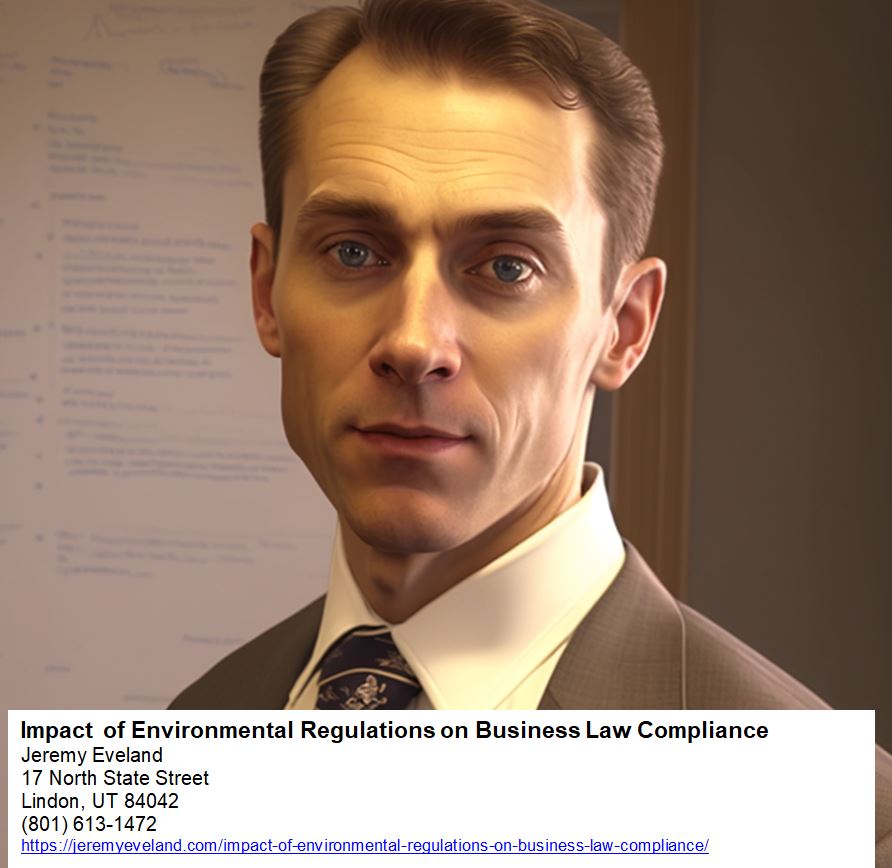In today’s increasingly environmentally-conscious world, it is crucial for businesses to ensure their claims of being “green” are not misleading or deceptive. Green claims compliance refers to the adherence to regulations and guidelines set forth by various governmental agencies to ensure businesses accurately represent their environmental initiatives. This article will explore the importance of green claims compliance for businesses and provide essential information for company heads seeking to navigate the complex legal landscape surrounding environmental advertising. From understanding the Federal Trade Commission’s Green Guides to implementing effective compliance measures, this article aims to equip readers with the knowledge needed to make informed choices and avoid legal liabilities.
Understanding Green Claims Compliance
Definition of Green Claims
Green claims refer to statements made by businesses about the environmental attributes or benefits of their products or services. These claims are intended to demonstrate that a company is environmentally responsible and sustainable in its operations. Green claims can cover a wide range of areas, including energy efficiency, recyclability, carbon footprint, and sustainable sourcing.
Importance of Compliance
Compliance with green claims is crucial for businesses because it ensures transparency, builds trust with consumers, and mitigates legal and reputational risks. Green claims compliance helps businesses avoid misleading or false advertising, which can lead to legal consequences and damage to their reputation. By adhering to green claims guidelines and regulations, companies demonstrate their commitment to environmental protection and sustainable practices, which can have a positive impact on their brand and attract environmentally conscious consumers.
Legal Framework for Green Claims Compliance
Federal Trade Commission (FTC) Guidelines
The Federal Trade Commission in the United States provides guidelines for businesses to follow when making green claims. These guidelines require that green claims be truthful, substantiated, and not misleading to consumers. The FTC also requires clear and prominent disclosures if applicable to prevent deception.
International Standards and Regulations
Apart from the FTC guidelines, there are various international standards and regulations that govern green claims compliance. These include ISO 14021 for self-declared environmental claims, ISO 14024 for environmental labeling and certification programs, and ISO 14025 for environmental product declarations. Companies operating globally may need to adhere to these standards to ensure compliance with green claims.
Industry-specific Compliance Requirements
Certain industries may have specific compliance requirements for green claims. For example, the food and beverage industry may have regulations on claims related to organic or sustainable agricultural practices. Similarly, the fashion industry may have guidelines for claims related to fair trade or sustainable materials. It is essential for businesses to be aware of and comply with industry-specific requirements to avoid potential legal issues.

Key Elements of Green Claims Compliance
Truthfulness and Substantiation
Green claims must be truthful and supported by scientific, reliable evidence. Businesses should conduct proper research and testing to ensure that their claims are accurate and avoid making exaggerated or misleading statements. It is important to have documentation and evidence to substantiate green claims in case of scrutiny or legal challenges.
Transparency in Disclosure
Transparency is a key element of green claims compliance. Businesses should clearly and prominently disclose any limitations or qualifications of their green claims. They should also disclose relevant information about their products or services that may impact their environmental claims. This transparency helps consumers make informed choices and prevents deception.
Unique Selling Points (USPs)
Companies should identify and highlight the unique environmental features of their products or services in their green claims. These unique selling points can differentiate them from competitors and attract environmentally conscious consumers. However, it is crucial to ensure that these USPs are truthful, substantiated, and not misleading.
Comparative Claims and Competitor Monitoring
Many businesses make comparative claims comparing their environmental practices or products to those of their competitors. While comparative claims can be effective, they must be accurate, verifiable, and not disparaging to competitors. It is important to monitor competitors’ claims to ensure compliance and to promptly address any potentially misleading or false statements.
Environmental Certifications and Labeling
Obtaining environmental certifications and using eco-labeling can enhance green claims compliance. Certifications from reputable third-party organizations demonstrate a company’s commitment to environmental standards and provide evidence for its claims. However, businesses should ensure that the certifications and labels used are accurate, relevant, and up to date.
Common Green Claims and Compliance Challenges
Recyclability and Biodegradability
Claims about recyclability and biodegradability can be challenging to substantiate and comply with. Companies must have clear evidence and documentation to support such claims and ensure that their products meet accepted industry standards for recyclability and biodegradability.
Energy Efficiency
Green claims related to energy efficiency should be supported by reliable data and scientific evidence. Companies must conduct proper testing and analysis to determine and demonstrate the energy efficiency of their products or processes accurately.
Carbon Footprint
Calculating and disclosing accurate carbon footprints can be complex and require thorough analysis. Businesses should follow recognized methodologies and standards to ensure the accuracy and transparency of their carbon footprint claims.
Sustainable Sourcing and Supply Chain
Claims about sustainable sourcing and responsible supply chain practices must be substantiated with evidence. Companies should have robust systems in place to monitor and assess their suppliers’ environmental practices and ensure compliance throughout their supply chain.
Wildlife Preservation
Claims related to wildlife preservation, such as habitat protection or conservation efforts, must be accurate and adequately documented. Businesses should demonstrate their commitment to wildlife preservation through partnerships with conservation organizations or by implementing specific measures within their operations.
Legal Consequences of Non-Compliance
FTC Enforcement Actions and Fines
Non-compliance with green claims regulations can result in enforcement actions by the Federal Trade Commission. The FTC has the authority to impose fines and penalties on businesses that engage in misleading or deceptive green advertising practices. These fines can be significant and can have a detrimental impact on a company’s financial health.
Lawsuits by Competitors and Consumers
Competitors or consumers may file lawsuits against businesses for false or misleading green claims. These lawsuits can lead to legal expenses, damages, and harm to a company’s reputation. By complying with green claims regulations, businesses can minimize the risk of facing such lawsuits.
Reputation Damage
Non-compliance with green claims regulations can result in significant damage to a company’s reputation. Consumers who feel misled or deceived may share their negative experiences through reviews, social media, or word of mouth, impacting a company’s brand image and customer trust. Compliance with green claims helps protect a company’s reputation and maintain consumer confidence.
Ensuring Green Claims Compliance
Internal Compliance Programs
Businesses should establish internal compliance programs dedicated to green claims compliance. These programs should include policies, procedures, and training to ensure that employees understand and adhere to green claims regulations. Regular internal audits can help identify and rectify any non-compliance issues proactively.
Third-Party Audits and Certifications
Engaging third-party auditors or certification bodies can provide independent verification and validation of green claims. Obtaining certifications from reputable organizations adds credibility to a company’s green claims and assures consumers of its commitment to environmental responsibility.
Record Keeping and Documentation
Maintaining comprehensive records and documentation is crucial for green claims compliance. Businesses should keep records of research, testing, certifications, and any other supporting evidence of their green claims. These records help demonstrate compliance and can be invaluable in case of legal challenges.
Employee Training and Awareness
Ensuring that employees are well-informed about green claims regulations and best practices is essential for compliance. Companies should provide regular training and awareness programs to educate their employees on the importance of accurate, truthful, and transparent green claims.
Regular Compliance Reviews
Regular reviews of green claims and advertising materials are necessary to ensure ongoing compliance. Companies should periodically evaluate their marketing and advertising campaigns to verify that their claims are accurate, up to date, and in line with applicable regulations. This proactive approach helps mitigate risks and ensures ongoing compliance.

Best Practices for Green Claims Compliance
Clear and Unambiguous Claims
Green claims should be clear, specific, and unambiguous, leaving no room for misinterpretation. Avoid using vague or general terms that do not provide meaningful information to consumers. Clearly communicate the environmental attributes and benefits of the products or services being claimed.
Accurate Environmental Benefit Assessments
Conduct accurate and thorough assessments of the environmental benefits of the products or services being claimed. Utilize reliable data and recognized methodologies to measure and communicate these benefits accurately.
Avoiding Vague and Overstated Claims
Avoid making vague or overstated claims that may mislead or deceive consumers. Ensure that claims are supported by sufficient evidence and avoid exaggerations or unsupported statements.
Proper Use of Certifications and Seals
Use environmental certifications and eco-labeling appropriately and judiciously. Only use certifications and seals that are relevant and applicable to the specific claims being made. Ensure that these certifications are current and from reputable organizations.
Exercising Caution with Comparative Claims
When making comparative claims against competitors, exercise caution to avoid false or misleading statements. Ensure that comparative claims are accurate, verifiable, and supported by evidence. Monitor competitors’ claims to ensure compliance and respond promptly to any potentially misleading statements.
Collaboration with Legal Professionals
Expert Guidance on Compliance
Collaborating with legal professionals who specialize in green claims compliance can provide valuable expert guidance. These professionals can help businesses navigate the complex landscape of regulations, standards, and industry-specific requirements, ensuring compliance and mitigating legal risks.
Reviewing Marketing and Advertising Materials
Legal professionals can review marketing and advertising materials to identify any potential legal risks or compliance issues. They can provide guidance on how to modify advertising campaigns to comply with green claims regulations without compromising on the effectiveness of the message.
Drafting Terms and Conditions
Including clear and comprehensive terms and conditions in your contracts and agreements can help protect businesses from legal challenges related to green claims. Legal professionals can assist in drafting such terms and conditions that address potential risks and liabilities.
Due Diligence in Mergers and Acquisitions
Legal professionals play a crucial role in conducting due diligence during mergers and acquisitions. They can assess the target company’s compliance with green claims regulations, identify potential liabilities, and help structure the deal to mitigate legal risks.

FAQs about Green Claims Compliance
1. What are green claims?
Green claims refer to statements made by businesses about the environmental attributes or benefits of their products or services. These claims are intended to demonstrate that a company is environmentally responsible and sustainable in its operations.
2. Why is compliance with green claims important?
Compliance with green claims is essential for businesses to ensure transparency, build trust with consumers, and mitigate legal and reputational risks. It helps businesses avoid misleading or false advertising, which can lead to legal consequences and damage to their reputation.
3. What are the legal consequences of non-compliance?
Non-compliance with green claims regulations can result in enforcement actions by regulatory authorities, fines, lawsuits by competitors and consumers, and significant damage to a company’s reputation.
4. How can businesses ensure green claims compliance?
Businesses can ensure green claims compliance by following guidelines and regulations set by authorities such as the FTC, adhering to international standards, conducting accurate assessments and verifications of claims, and implementing robust compliance programs.
5. What are the best practices for making green claims?
The best practices for making green claims include making clear and unambiguous claims, conducting accurate environmental benefit assessments, avoiding vague or overstated claims, using certifications and seals appropriately, and exercising caution with comparative claims. Regular reviews and collaboration with legal professionals can also help ensure compliance.






